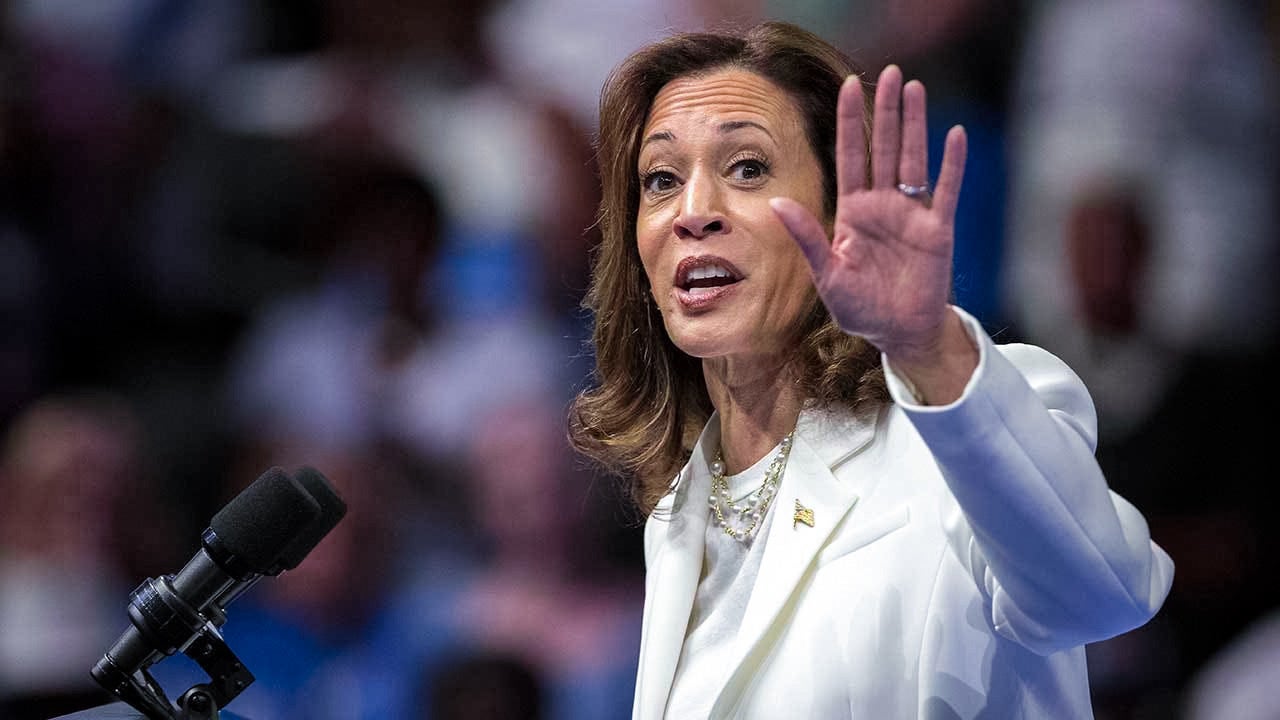Kamala Harris: A Press Conference Drought Amidst a Heated Campaign
Vice President Kamala Harris has officially secured her position as the Democratic nominee for president, yet she has gone an astonishing 72 days without holding an official press conference. This absence has raised eyebrows and sparked discussions about her campaign strategy, especially as her opponent, former President Donald Trump, has been actively engaging with the media. Trump recently held his third news conference since early August, using the platform to critique Harris’s home state of California and address pressing issues like crime, immigration, and inflation.
The Media Landscape: A Contrast in Engagement
While Trump has been vocal and visible, Harris’s approach has been markedly different. In recent weeks, she has ramped up her media appearances, opting for interviews on radio shows and local television. Notably, she sat down with MSNBC’s Stephanie Ruhle and participated in a high-profile campaign event alongside Oprah Winfrey. However, these appearances have not replaced the traditional press conference format, which many believe is crucial for a candidate seeking the highest office in the land.
Conservative commentators have pointed out that Harris’s lack of formal press interactions may be a deliberate strategy to avoid tough questions and maintain a certain image. Jorge Bonilla, host of Conservative Radio Libre, suggested that while a press conference would be beneficial, it seems almost "irrelevant" given the media’s tendency to give her a pass. He described her approach as a "plexiglass basement" strategy, where she appears to be engaging with the public while remaining largely inaccessible to the press.
Criticism of Harris’s Responses
Harris’s recent interviews have not been without controversy. During a sit-down in Philadelphia, she faced criticism for her response to a question about her economic policies. When asked how she would address rising prices, she spoke about her middle-class upbringing and the pride of her neighbors in their lawns, which many found to be an inadequate answer to a pressing issue. This response drew sharp rebuke from various quarters, highlighting the challenges she faces in articulating her policy positions effectively.
The Political Implications of Avoiding Press Conferences
The decision to forgo press conferences could have significant implications for Harris’s campaign. As the election approaches, voters are increasingly looking for transparency and accountability from their candidates. By avoiding direct engagement with the press, Harris risks creating an impression of evasiveness, which could be detrimental in a competitive political landscape.
Moreover, her critics argue that this strategy undermines the democratic process by limiting public discourse. As former ABC news anchor Barbara Walters pointed out, engaging with the media is an essential part of being a candidate for president. The expectation is that candidates should be willing to answer tough questions and defend their policies in front of the public.
The Road Ahead for Harris
As the campaign progresses, the question remains: will Kamala Harris hold a formal press conference? While she has been active in other forms of media engagement, the absence of a traditional press conference raises concerns about her willingness to confront challenging questions head-on. The political landscape is rapidly evolving, and as Harris navigates her campaign, the pressure to connect with voters through direct media engagement will only intensify.
In the coming weeks, it will be crucial for Harris to find a balance between maintaining her campaign strategy and addressing the expectations of the electorate. As she continues to campaign, the spotlight will remain on her ability to communicate her vision and policies effectively, especially in the face of a formidable opponent like Trump, who is not shying away from the media spotlight.
